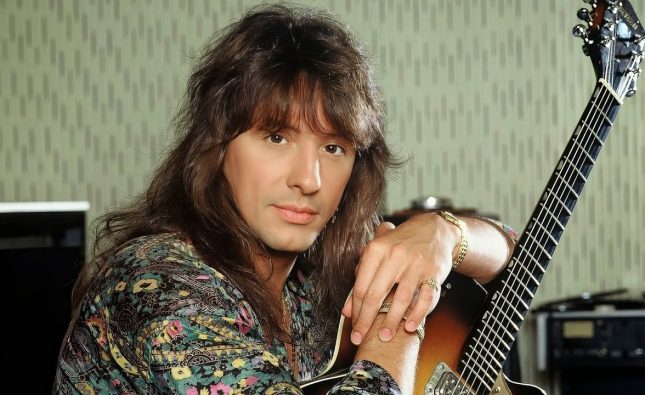
Introduction
Podcasting has undergone a remarkable transformation since its inception in the early 2000s. Initially perceived as a niche hobby for tech enthusiasts and amateur broadcasters, podcasting has evolved into a mainstream medium that is reshaping the landscape of entertainment. This article delves into the multifaceted evolution of podcasting within the entertainment space, examining its current state, trends, and future prospects.
The Rise of Podcasting in Entertainment

-
Early Beginnings
Podcasting began as a relatively obscure form of media, with limited reach and a small, dedicated audience. The term “podcast” itself, a portmanteau of “iPod” and “broadcast,” was coined in 2004 by journalist Ben Hammersley. Early podcasts were primarily audio files distributed via RSS feeds, allowing users to download and listen to them on their portable media players.
-
Mainstream Breakthrough
The turning point for podcasting came in 2014 with the release of “Serial,” a true-crime podcast that captivated millions of listeners worldwide. “Serial” demonstrated the potential of podcasting as a storytelling medium and paved the way for other high-quality, narrative-driven podcasts. This success attracted significant attention from both creators and listeners, leading to a surge in podcast production and consumption.
Podcasting’s Integration into the Entertainment Industry

-
Celebrity Involvement
One of the most notable trends in podcasting’s evolution is the involvement of celebrities and established entertainment figures. Recognizing the medium’s potential to reach and engage audiences, many actors, musicians, and comedians have launched their own podcasts. These celebrity-hosted shows often leverage their hosts’ existing fan bases, further driving the popularity of podcasting.
-
Cross-Media Synergies
Podcasting has also become a valuable component of cross-media storytelling. Many successful podcasts have been adapted into other forms of entertainment, such as television series, films, and books. For example, the podcast “Homecoming” was adapted into a TV series starring Julia Roberts, while “Lore” was turned into an Amazon Prime series. These adaptations highlight the versatility of podcasting as a source of compelling content that can transcend its original format.
-
Diversification of Content
The range of content available in the podcasting space has expanded significantly. While early podcasts were often focused on tech, news, and niche interests, today’s podcasting landscape encompasses a wide array of genres, including true crime, comedy, science fiction, history, and more. This diversification has made podcasting an appealing medium for a broader audience, catering to diverse tastes and preferences.
Technological Advancements and Their Impact

-
Improved Accessibility
Technological advancements have played a crucial role in making podcasting more accessible to both creators and listeners. The proliferation of smartphones and the availability of podcasting apps have made it easier for users to discover and consume podcasts. Platforms like Apple Podcasts, Spotify, and Google Podcasts have streamlined the process of finding and subscribing to shows, contributing to the medium’s growth.
-
Enhanced Production Quality
Advancements in recording technology and software have also elevated the production quality of podcasts. High-quality microphones, editing software, and sound design tools have become more affordable and accessible, enabling creators to produce professional-grade content. This improvement in audio quality has enhanced the overall listening experience, making podcasts more enjoyable and engaging.
-
Monetization Opportunities
The evolution of podcasting has also been marked by the development of various monetization strategies. Advertising remains a primary revenue stream for many podcasters, with brands recognizing the value of reaching engaged, niche audiences. Additionally, subscription models and crowdfunding platforms like Patreon have provided creators with alternative ways to generate income. These monetization opportunities have incentivized more creators to enter the podcasting space, further enriching the content available to listeners.
The Future of Podcasting in Entertainment

-
Continued Growth and Innovation
The podcasting industry shows no signs of slowing down. As more creators and listeners embrace the medium, we can expect continued growth and innovation. Emerging technologies, such as artificial intelligence and virtual reality, may further enhance the podcasting experience, offering new ways to create and consume content.
-
Global Expansion
While podcasting has already gained significant traction in English-speaking countries, its potential for global expansion is vast. Non-English podcasts are on the rise, catering to diverse linguistic and cultural audiences. As podcasting platforms and creators continue to explore new markets, the medium’s reach and influence will only expand.
-
Integration with Other Media
The lines between podcasting and other forms of media will continue to blur. We can anticipate more cross-media collaborations, with podcasts serving as a launching pad for new TV shows, films, and other entertainment projects. This integration will further solidify podcasting’s role as a central player in the entertainment industry.
Conclusion
Podcasting has come a long way from its humble beginnings, evolving into a dynamic and influential medium within the entertainment space. With its diverse content, technological advancements, and growing monetization opportunities, podcasting is poised for continued growth and innovation. As the industry evolves, it will undoubtedly continue to reshape the landscape of entertainment, offering new and exciting ways for creators and audiences to connect.









